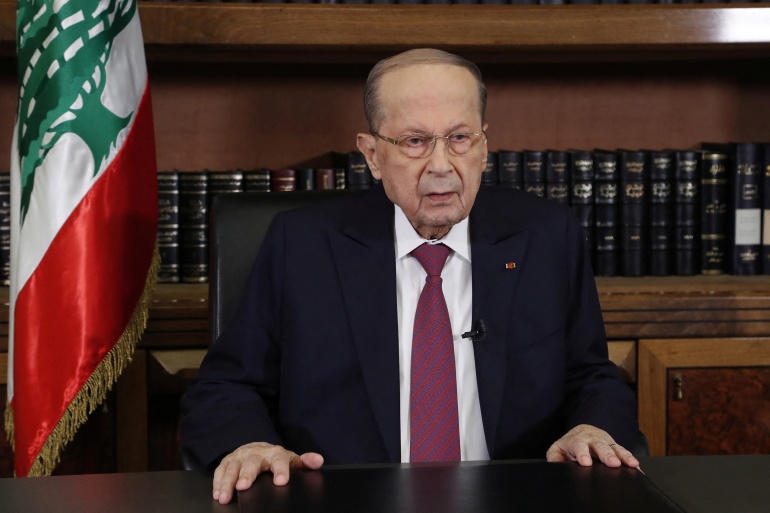
By Daniel Stewart – msn.com — Lebanese President Michel Aoun confirmed Thursday in an address to the nation that Beirut has approved the agreement reached Tuesday with Israeli authorities to demarcate their common maritime border, a pact he called “historic”. “This indirect agreement responds to Lebanese demands and preserves our rights in their entirety”, Aoun assured after accepting the conditions set by the last proposal of the American mediator, Amos Hochstein. He stressed that this pact between the two nations, which he described as a “historic achievement”, has stipulated “how to resolve any future disputes”, while assuring that the country’s land borders “have not been touched”.
Hezbollah leader says will back maritime border agreement Aoun explained that Lebanon has preserved “an area of 860 square kilometers” without ceding “any kilometer to Israel”. “No normalization was reached with Israel, no direct talks or agreements were concluded,” he added, as reported by the Lebanon 24 news portal. The day before, the Israeli government also approved the provisions of the agreement with an “overwhelming majority”, as announced in a statement, in which it assured that it would go before Parliament to give it a final ‘yes’. The pact recognizes the border set with buoys by Israel, allowing Lebanon to enjoy exploitation of the area north of Line 23, including the Qana field. Israel would retain control of Karish and has said it could start work in the area, amid threats to do so by the Lebanese Shiite militia-party Hezbollah.
Israel and Lebanon — which are technically at war and do not maintain diplomatic relations — began a process of indirect talks in October 2020 that are mediated by the United States and held under United Nations auspices at the international body’s headquarters in the Lebanese city of Naqura. The negotiations revolve around an area of 860 square kilometers which, according to both countries, lie within their respective Exclusive Economic Zones, a matter of particular importance following the discovery of gas reserves in this area which both Israel and Lebanon hope to exploit.



